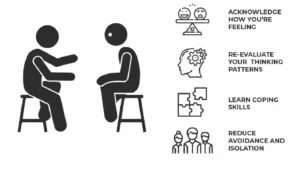Opening the discussion around special educational needs, particularly for children with Prader Willi Syndrome, raises some critical questions. How can schools effectively cater to these students’ unique requirements? Are our educational systems equipped enough to allow every child to reach their fullest potential? These questions aren’t hypothetical — they are crucial and demand unwavering attention. Today’s blog post ventures into the world of Prader Willi Syndrome (PWS) and explores how schools can support these children better. It’s about building a bridge that extends between education and special needs, encouraging inclusive learning environments that genuinely nurture growth.
Prader Willi Syndrome is a genetic disorder typically characterized by weak muscle tone, feeding difficulties, poor growth, and delayed development. As they grow older, affected children face challenges like intellectual disabilities, compulsive eating, and behavioural problems. In this milieu, how can a school setting assist in supporting the child’s overall development? Let’s dive deep into this topic.
Navigating this sphere requires understanding, empathy, and a robust support system. It calls for acknowledging that supporting children with Prader Willi Syndrome in schools goes beyond just accommodating them. Now more than ever, we are realizing the significance of inclusive education and how it can holistically promote emotional well-being and academic growth.
Recognising the Syndrome: The First Step to Effective Support
Understanding the core challenges of children with Prader Willi Syndrome is vital to building an effective support plan. Gaining knowledge of the syndrome’s physical characteristics, cognitive challenges, behavioural issues, and the child’s potential for growth can aid schools in designing a personalized educational roadmap.
Products of their genetic coding, children with Prader Willi Syndrome invariably struggle with impulse control and compulsive eating. These behavioural challenges, coupled with intellectual disabilities, require specialized attention, adaptive teaching strategies, and a compassionate, patient environment. Knowing this becomes the foundation for implementing practical solutions in the school setting.
Grasping the central tenets of PWS aids in fostering an inclusive environment that isn’t solely focused on academic performance but cultivates holistic development. This understanding creates a blueprint for educating staff, modifying curriculum where necessary, and introducing needed interventions.
Role of Specialised Training for Educators
Specialised training is an invaluable tool to prepare educators to understand and respond to the needs of children with Prader Willi Syndrome. Comprehensive training modules can equip teachers with insights into effectively managing behaviours, utilizing adaptive teaching methods, and fostering a nurturing environment.
Teachers, after undergoing specialised training, can shape their classrooms to meet the unique needs of children with PWS. They gauge the need for individualized education programs and potentially augment the child’s learning experience. It’s not just about creating adaptive lesson plans; it’s about instilling a sense of belonging and self-worth in these children.
By accessing specialized training, educators can commit to fostering an empathetic, non-judgemental learning environment that accommodates and nurtures. They are equipped to shape the lens through which children with Prader Willi Syndrome view themselves and their capabilities, thereby influencing their self-esteem and academic growth.
Adapting the Curriculum: A Path to Inclusive Learning
Tailoring a curriculum that accommodates children navigating challenges brought about by PWS can make a significant difference—making necessary adaptations in the curriculum, can aid in meeting the child’s academic and developmental needs.
Personalising education, such as using simpler language, visuals, and practical lessons, aids comprehension, and engagement. It’s about marrying the curriculum with teaching strategies resonating with the child’s learning style.
The modified curriculum should focus on shaping life skills, encouraging active participation, and nurturing a child’s inherent capabilities, ushering them toward independence. An adapted curriculum is more than just academic modifications; it’s a gateway for children with Prader Willi Syndrome to connect with their identity and the world beyond textbooks.
Role of Mental Health Professionals in Schools
Coordinating with mental health professionals in schools sustains the emotional well-being of children with PWS. The presence of counselors and psychologists can help children process their feelings, manage stress, and build resilience.
Child psychologists can work closely with teachers to observe, interpret, and manage behavioural issues. They can guide students with Prader Willi Syndrome toward adaptive coping strategies and resilience, aiding their journey toward emotional stability.
Maintaining a cadence with mental health professionals fosters the identification of stress triggers, developments, and effective management plans. A synergistic effort between education and mental health will positively influence the holistic growth of children with PWS.
The Support of Peers and Parents: Cultivating Empathy
The role of peer acceptance is instrumental in shaping self-esteem and emotional stability in children with PWS. Schools should foster a culture of empathy, understanding, and acceptance; lessons on diversity and inclusivity should be part of the curriculum.
Parents are guardians of their child’s needs and emotions. Schools can open their doors to parent-teacher associations that can bring about valuable insights. Parents can engage in these platforms, increasing awareness about PWS among educators, bridging gaps, and fostering a more inclusive environment.
Access to Resource Rooms and Additional Support
Access to fully-equipped resource rooms can significantly aid the child’s journey. Specially designed for children with different abilities, these rooms can offer personalized teaching plans and provide additional learning materials.
Schools can facilitate access to speech therapists, occupational therapists, and support staff to attend to children with PWS. These personnel, along with educators, can form a robust support system.
Conclusion
Supporting children with Prader Willi Syndrome in schools is a journey of collective effort, understanding, empathy, and willingness to adapt. Schools should extend beyond accommodating these children to advocating for their holistic development.
The recognition of PWS, specialized training for teachers, an adapted curriculum, mental health support, peer and parental engagement, and resource rooms together form a solid foundation for support. As we navigate this realm, let’s remember that this is less about transforming these children and more about transforming our schools and our perspective towards inclusive education. Every child deserves an environment that’s tuned to their unique melody, one that nurtures them into blooming into their extraordinary selves.



